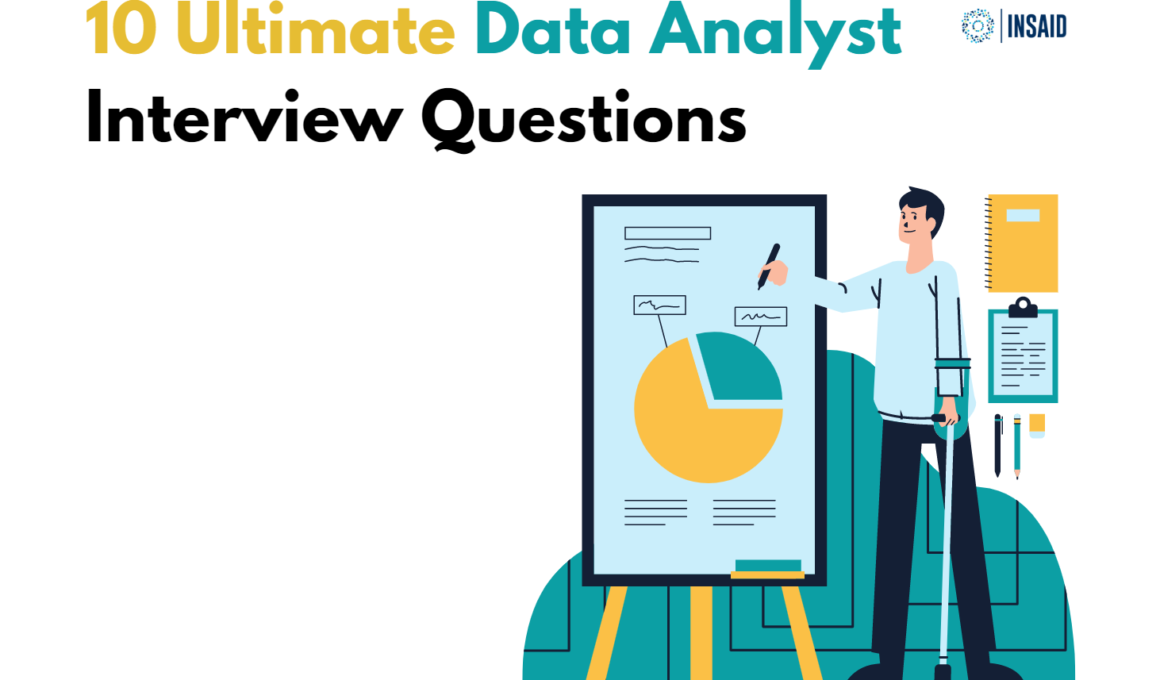Get hired as a Data Analyst by confidently responding to the most asked interview questions. No matter how qualified or experienced you are, if you stumble over your thoughts while answering the interviewer, it might take away some of your chances of getting onboard.
In this blog, you will find the ultimate data analysts interview questions covering both technical and non-technical areas of expertise. Let’s dive in.
List of Data Analysts interview questions
1. Share about your most successful/most challenging data analysis project?
What they’re really asking:
- How do you deal with challenges?
- How do you measure the success of a data project?
How to answer?
In this question, you can share your strengths and weaknesses with the interviewer.
When answering questions like these, data analysts must attempt to share both their strengths and weaknesses.
You can discuss how you succeeded with your project and what made it successful.
Take a look at the original job description to see if you can incorporate some of the requirements and skills listed. If you were asked the negative version of the question, be honest about what went wrong and what you would do differently in the future to fix the problem.
Despite our human nature, mistakes are a part of life. What’s critical is your ability to learn from them.
Further talk about any:
- SAAS Platforms
- Programming Languages
- Libraries
Why did you use them and how did you use them to accomplish yours? Do try to answer this as well.
Discuss the entire pipeline of your projects from collecting data, to turning it into valuable insights. Describe the ETL pipeline including data cleaning, data preprocessing, and exploratory data analysis.
What were your learnings and what issues did you encounter and how did you deal with them is all important for this kind of question.
2. Tell us about the largest data set you’ve worked with?
What they’re really asking: Can you handle large Data Sets?
How to answer?
Data sets of varying sizes and compositions are becoming increasingly common in many businesses. Answering questions about data size and variety requires a thorough understanding of the type of data and its nature.
“What data sets did you handle?”, “What types of data were present?”, are follow up questions that you may need to incorporate in your answer.
It is not necessary that you should only mention a dataset you worked with at your job. But you can also share about varying sizes specifically large datasets you worked with as a part of:
- A Data Analysis Course
- Bootcamp
- Certificate Program
- Degree
As you put together a portfolio, you may also complete some independent projects where you find and analyze a data set. All of this is valid material to build your answer.
The more versatile your experience with datasets will be, the greater the chances there are of getting hired.
3. What is your process for cleaning data?
What they’re really asking: How do you handle missing data, outliers, duplicate data, etc.?
How to answer?
Data analysts are widely responsible for:
- Data Preparation
- Data Cleansing
- Data Cleaning
Organizations expect data analysts to spend a significant amount of time preparing data for an employer. As you answer this question, share in detail with the employer why data cleaning is so important.
In your answer, give a short description of what data cleaning is and why it’s important to the overall process. Then walk through the steps you typically take to clean a data set.
4. What scripting languages are you trained in?
What they’re really asking: Are you well versed in SQL, R or Python?
How to answer?
In order to be a data analyst, you will almost certainly need both SQL and a statistical programming language like R or Python. If you are already proficient in the programming language of your choice at the job interview, that’s fine. If not, you can demonstrate your enthusiasm for learning it.
In addition to your current languages’ expertise, mention how you are developing your expertise in other languages. If there are any plans for completing a programming language course, highlight its details during the interview.
To gain some extra points, do not hesitate to mention why and in which situations SQL is used, and why R and python are used.
5. What is Time Series analysis?
How to answer?
This question should be answered very directly. Data analysts are responsible for analyzing data points collected at different intervals. While answering this question you also need to talk about the correlation between the data evident in time-series data.
Don’t worry, you got this!

6. What is the difference between data profiling and data mining?
What they’re really asking: Do you know everything about Data Profiling and Data Mining?
How to answer?
Profiling data attributes such as data type, frequency, and length, as well as their discrete values and value ranges, can provide valuable information on data attributes. It also assesses source data to understand its structure and quality through data collection and quality checks.
On the other hand, Data Mining is a type of analytical process that identifies meaningful trends and relationships in raw data. This is typically done to predict future data.
7. How have you used statistics in your work as a Data Analyst?
What they’re really asking: Do you have basic statistical knowledge?
How to answer?
Data analysts should have at least a rudimentary grasp of statistics and know-how that statistical analysis helps business goals. Organizations look for a sound knowledge of statistics in Data analysts to handle complex projects conveniently.
If you used any statistical calculations in the past, be sure to mention it. If you haven’t yet, familiarize yourself with the following statistical concepts:
- Mean
- Standard Deviation
- Variance
- Regression
- Sample Size
- Descriptive and Inferential Statistics
While speaking of these, share information about What you can derive from them? What knowledge can you gain about your dataset?
8. Explain the difference between R-Squared and Adjusted R-Squared
What they’re really asking: Do you have basic R-Squared knowledge?
How to answer?
The most vital difference between adjusted R-squared and R-squared is simply that Adjusted R-squared considers and tests different independent variables against the model and R-squared does not.
An R-squared value is an important statistic for comparing two variables. However, when examining the relationship between a single stock and the rest of the S&P500, it is important to use adjusted R-squared to determine any discrepancies in correlation.
9. Explain univariate, bivariate, and multivariate analysis
What they’re really asking: How familiar are you with these Data Science terms?
How to answer?
Bivariate Analysis, which is simpler than univariate analysis, is used when the data set only has one variable and it does not involve causes or effects.
Univariate Analysis, which is more complicated than bivariate analysis, is used when the data set has two variables and researchers are looking to compare them.
When the data set has two variables and researchers are investigating similarities between them, Multivariate Analysis is the right type of statistical approach.
10. What do you think are the three best qualities that great data analysts share?
What they’re really asking: How familiar are you with the requirements of this role?
How to answer?
List down some of the most critical qualities of a Data Analyst. This may include
- Problem-Solving
- Research
- Attention to Detail
Apart from these qualities, do not forget to mention soft skills which are necessary to communicate with team members and across the department.
Conclusion
Did we miss any Data Analyst interview question? Share with us in the comments below and help each other to ace the next data analyst job.
 Pin
PinRemember to check out our collection of Data Science resources to keep you learning and practicing, and you’ll be well on your way to having a successful career in data science!






